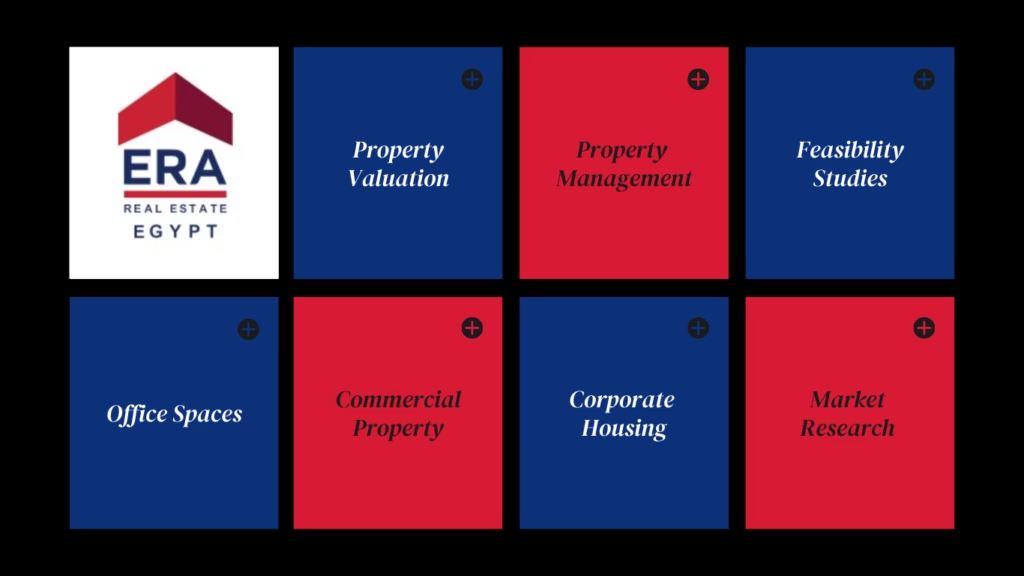Seeing Beyond Depreciation: How assets revaluation Benefits Businesses
Introduction
Definition of Fixed Assets
Fixed assets are essential components of any business, often referred to as long-term tangible assets that a company uses to generate revenue. These can include machinery, buildings, land, vehicles, and equipment. Unlike current assets which can be quickly converted into cash, fixed assets are not expected to be sold or consumed within a year. To illustrate, consider a small manufacturing company. The industrial equipment it uses to produce goods is categorized as a fixed asset. This equipment not only represents a significant portion of the company’s expenses but also plays a crucial role in its production capacity.
Significance of Fixed Assets Revaluation
The valuation of fixed assets is paramount for several reasons:
- Financial Reporting: Accurate asset valuation ensures that financial statements reflect the true value of a company’s assets, thus providing stakeholders with reliable insights into its financial health.
- Investment Decisions: Investors and management rely on updated valuations to make informed decisions regarding capital expenditure and investments.
- Compliance: Adhering to accounting standards and regulations often necessitates periodic revaluation of fixed assets to prevent misrepresentation in financial reports.
Moreover, fixed assets contribute to understanding the assets conversion cycle, where the process of converting resources into cash flow is analyzed. Ignoring the need for regular revaluation can lead to potential discrepancies in reporting, affecting the overall credibility of financial statements. In this context, the importance of effective asset revaluation becomes evident. Adequate knowledge and application of asset valuation strategies not only influence compliance and transparency but also uplift a company’s market value. As we delve deeper into this topic, it becomes clear that understanding fixed asset valuation is a cornerstone for sustainable business growth.
Importance of Revaluing Fixed Assets
Impact on Financial Statements
Revaluing fixed assets is a critical process that significantly impacts a company’s financial statements. When assets are revalued, their carrying amounts are adjusted to reflect fair market value, which can lead to notable changes in financial appearances. For instance, if a company holds an outdated manufacturing plant initially valued at $1 million, but upon revaluation discovers it is now worth $1.5 million, this adds an extra $500,000 to the balance sheet. This increase in asset value can have several consequences:
- Asset Enhancement: The overall asset base of the company is strengthened, enhancing its financial stability.
- Dividend Policy: With higher asset values, the firm may choose to increase dividends, potentially attracting more investors.
- Debt Capacity: Improved asset values can increase the company’s borrowing capacity, providing more leverage for future expansion.
These adjustments play a crucial role in portraying an accurate financial position to investors, creditors, and other stakeholders.
Compliance with Accounting Standards
Compliance with accounting standards is another fundamental reason for regular revaluation of fixed assets. Standards such as the International Financial Reporting Standards (IFRS) and Generally Accepted Accounting Principles (GAAP) require companies to maintain transparency and accuracy in their financial reporting. The significance of adhering to these standards includes:
- Trust and Credibility: Consistent revaluation practices increase trust from shareholders and regulators.
- Avoiding Penalties: Non-compliance can lead to fines and legal implications, which can be detrimental to a business’s reputation.
Incorporating asset revaluation into the regular accounting practice not only aligns a company with industry standards but also fosters a culture of accuracy and responsibility. By continually assessing asset values, businesses can ensure they meet regulatory expectations while also preparing themselves for future growth opportunities.
Methods of Revaluing Fixed Assets
Cost Model vs. Revaluation Model
When it comes to revaluing fixed assets, two primary methods stand out: the Cost Model and the Revaluation Model. Each has its own set of advantages and considerations that can significantly influence a company’s financial reporting and overall asset management strategy.
- Cost Model:
- Under this model, assets are recorded at their historical cost minus any accumulated depreciation.
- This method is straightforward and widely used; however, it may not always reflect the current market value of an asset.
- For instance, a company may own machinery that was purchased a decade ago at a significant price but has since appreciated due to scarcity in the market.
- Revaluation Model:
- This approach allows businesses to adjust the book value of assets to their fair market value periodically.
- This model provides a more realistic representation of company assets, particularly in industries with rapidly changing asset values, such as technology or real estate.
- However, it requires rigorous assessments and can be more complex to maintain due to periodic valuations.
Conducting a Revaluation
Conducting a revaluation is a meticulous process that involves several steps:
- Identify Assets for Revaluation: Determine which fixed assets require revaluation based on changes in market conditions or significant events.
- Engage Valuation Experts: Often, it is beneficial to involve qualified appraisers who specialize in the type of asset being evaluated. Their expertise can provide a staggering insight that internal assessments might miss.
- Perform the Valuation: The valuation itself will typically involve thorough inspections, analysis of market conditions, and utilization of industry benchmarks.
- Adjust Financial Statements: Once the new values are determined, it’s vital to update the financial statements accordingly. This ensures all stakeholders have access to the most current and accurate information.
By choosing the correct method and executing a comprehensive revaluation, businesses can ensure their fixed assets reflect their true value, leading to better financial management and increased stakeholder confidence.
Benefits for Businesses
Improved Accuracy of Asset Value
One of the most significant benefits of revaluing fixed assets is the improved accuracy of asset value. When companies take the time to reassess their assets, they can ensure that the values reflected on their balance sheets truly represent the current market conditions. For instance, consider a company that owns several commercial properties. Over time, these properties might appreciate significantly due to development in that area. If the company neglects to update these values, its financial statements will portray a distorted view of its financial health. The key advantages of improved asset valuation include:
- Enhanced Credibility: Accurate asset values bolster the transparency of financial statements, which can increase investor confidence.
- Informed Financing Decisions: Many businesses rely on their asset values to secure loans. Correctly valued assets can improve borrowing capacity and potentially lead to better interest rates.
- Strategic Planning: Accurate valuations inform management decisions regarding asset disposals, purchases, or upgrades.
Enhanced Decision-Making
Beyond just accurate valuation, revaluing fixed assets also enhances decision-making processes. Armed with current data about asset values, management can make more informed strategic choices that benefit the company in the long term.
- Resource Allocation: Knowing the true worth of assets allows businesses to allocate resources more effectively, ensuring capital is directed towards high-value operations.
- Investment Opportunities: A clear understanding of asset values can reveal potential for reinvestment or expansion opportunities that management may not have considered otherwise.
- Performance Evaluation: Regular asset revaluation enables better tracking of operational efficiency, leading to more insightful performance evaluations.
In conclusion, the practice of revaluing fixed assets not only ensures accurate reporting but also sharpens the decision-making process, placing businesses in a stronger position for growth and sustainability. This proactive approach can lead to tangible benefits and prepare businesses for future challenges.
Challenges and Considerations
Accounting Implications
While the benefits of revaluing fixed assets are numerous, it’s important to recognize the challenges and considerations associated with this process. One of the most significant hurdles revolves around accounting implications. When a company opts for asset revaluation, it directly affects the financial reporting framework. For example, transitioning from a cost model to a revaluation model requires meticulous adjustments to the accounting processes. Companies may find themselves grappling with several issues:
- Complex Calculations: Determining fair market value often involves complex calculations, and accounting teams need to ensure they possess the necessary skills and knowledge to conduct these valuations accurately.
- Depreciation Changes: Revalued assets can lead to alterations in depreciation methods. If asset values increase, the depreciation expense will need to be recalculated, potentially impacting profit margins.
- Regulatory Compliance: Frequent revaluations may draw more scrutiny from regulators, and companies must ensure that they are following all applicable international and local accounting standards.
Potential Risks
Additionally, there are potential risks associated with the revaluation process that businesses should consider.
- Overvaluation Risk: One major concern is the possibility of overestimating asset values. An inflated asset valuation can mislead investors and lenders, leading to overconfidence in the company’s financial strength.
- Market Volatility: Asset values can fluctuate based on market conditions. A sudden downturn could render previously high valuations irrelevant, creating discrepancies that can affect liquidity or borrowing capacity.
- Reputation Damage: If stakeholders perceive a revaluation as manipulative or if errors are discovered post-reporting, it can lead to reputational damage that might hinder investor trust.
In summation, while revaluing fixed assets presents clear benefits, companies must tread carefully, ensuring they are mindful of the associated accounting implications and potential risks. A robust plan, including proper training for staff and engaging valuation experts, can help mitigate these challenges effectively.
Case Studies
Real-world Examples
Examining real-world case studies can offer valuable insights into the implementation and effects of fixed asset revaluation. Let’s look at a couple of notable examples that illustrate both the process and the outcomes.
1. ABC Real Estate Corp. ABC Real Estate, a mid-sized company, decided to revalue its properties and building equipment after expansion. Upon appraisal, they discovered that due to recession and inflation, their older buildings had retained more value than anticipated. This reassessment resulted in a significant asset increase of 30%.
- Result: The higher asset value allowed ABC Real Estate to secure a larger loan for further expansion, highlighting how revaluation can enhance borrowing capacity.
2. XYZ Real Estate Holdings XYZ Real Estate Holdings is another pertinent example. The company routinely revalued its properties in a rapidly developing urban area. During one valuation cycle, property values skyrocketed due to a commercial boom, resulting in a 50% increase in the value of their portfolio.
- Result: This revaluation not only boosted their balance sheet but also positioned them favorably in negotiations with potential investors seeking profitable real estate ventures.
Outcomes of Fixed Asset Revaluation
The outcomes stemming from these real-world examples underscore the importance of revaluing fixed assets:
- Financial Stability: Enhanced valuations can provide companies with greater financial stability and improved liquidity, enabling them to pursue growth opportunities.
- Investor Confidence: By maintaining accurate asset values, companies can instill confidence in current and potential investors, reinforcing their credibility in the market.
- Strategic Growth: Accurate valuations allow for better strategic planning and resource allocation, ensuring businesses are well-equipped to adapt to changing market conditions.
Ultimately, these case studies demonstrate that effectively revaluing fixed assets not only improves a company’s financial standing but also supports its overall strategic direction, creating a ripple effect in terms of growth and investor relations. It’s a clear testament to the profound influence that proper asset management can wield in today’s dynamic business environment.
Future Trends
Technology's Role in Asset Valuation
As we look toward the future, technology is poised to play an increasingly pivotal role in the field of asset valuation. The advent of sophisticated software and tools is transforming how businesses approach the revaluation process. For instance, many companies are now employing automated valuation models (AVMs) to acquire accurate and real-time assessments of their assets. These technologies leverage big data and machine learning algorithms to evaluate assets based on extensive datasets, which can yield more precise valuations.
- Real-time Insights: By utilizing these tools, companies can monitor market trends and asset performance 24/7, making timely adjustments to seemingly volatile asset values.
- Cost-Effectiveness: Automated systems can reduce the need for extensive manual labor, leading to significant cost savings over time.
A personal anecdote comes to mind about a friend who runs a logistics firm. He recently integrated asset management software that offered predictive analytics. This has allowed him to foresee fluctuations in equipment values based on market changes, greatly enhancing his decision-making process.
Evolving Accounting Practices
In tandem with technological advancements, accounting practices are also evolving. The integration of technology is facilitating new methodologies in asset valuation that align with global accounting standards.
- Standardization: As companies increasingly adopt standardized accounting practices globally, the assessment of fixed assets is becoming more uniform, ensuring consistency in reporting.
- Sustainability Reporting: There is a growing trend toward incorporating environmental, social, and corporate governance (ESG) criteria into asset valuations. Companies are now considering sustainability factors, which can affect asset values—such as energy efficiency or carbon footprint.
Moreover, with the rise of blockchain technology, asset tracking and valuation could become even more streamlined. This decentralized technology promises transparency and verification throughout the valuation process, reducing the risk of discrepancies. In conclusion, the future of asset valuation looks promising, driven by technological advancements and evolving practices in accounting. Businesses that embrace these changes will not only stay ahead of the curve but also significantly enhance the value and accuracy of their financial reporting. Adapting to these trends can provide firms with a competitive edge while ensuring they are well-equipped for challenges ahead.
Conclusion
In reviewing the profound impact of fixed asset revaluation, it’s clear that the practice brings numerous benefits to businesses. Accurate asset valuations lead to enhanced financial reporting, which can have a ripple effect across various aspects of a company. Key benefits include:
- Improved Financial Statements: With updated asset values, stakeholders gain a clearer picture of a company’s health.
- Increased Investment Opportunities: Realistic valuations can enhance borrowing capacity and investor confidence.
- Informed Decision-Making: Management can make strategic choices based on precise asset valuations, leading to smarter resource allocation.
Reflecting on the previous case studies, it’s evident that companies like ABC Manufacturing and XYZ Real Estate Holdings leveraged asset revaluation to strengthen their market positions and enhance financial operations significantly.
Recommendations for Businesses
For businesses aiming to adopt or improve their fixed asset revaluation practices, consider the following recommendations:
- Engage Experts: When conducting revaluations, bringing in qualified appraisers or consultants can ensure accuracy and compliance with accounting standards.
- Utilize Technology: Embrace asset management software or automated valuation models to streamline the revaluation process and gain real-time insights.
- Establish Regular Review Cycles: Make revaluation a routine part of your accounting practices—perhaps quarterly or annually—to ensure asset values remain aligned with market conditions.
- Educate Teams: Regular training sessions on the latest accounting standards and valuation techniques can empower your financial team to manage asset valuations effectively.
In conclusion, embracing asset revaluation equips businesses with the tools they need to foster growth and maintain financial integrity. As technology and accounting practices continue to evolve, remaining proactive in these areas will position companies for long-term success.






